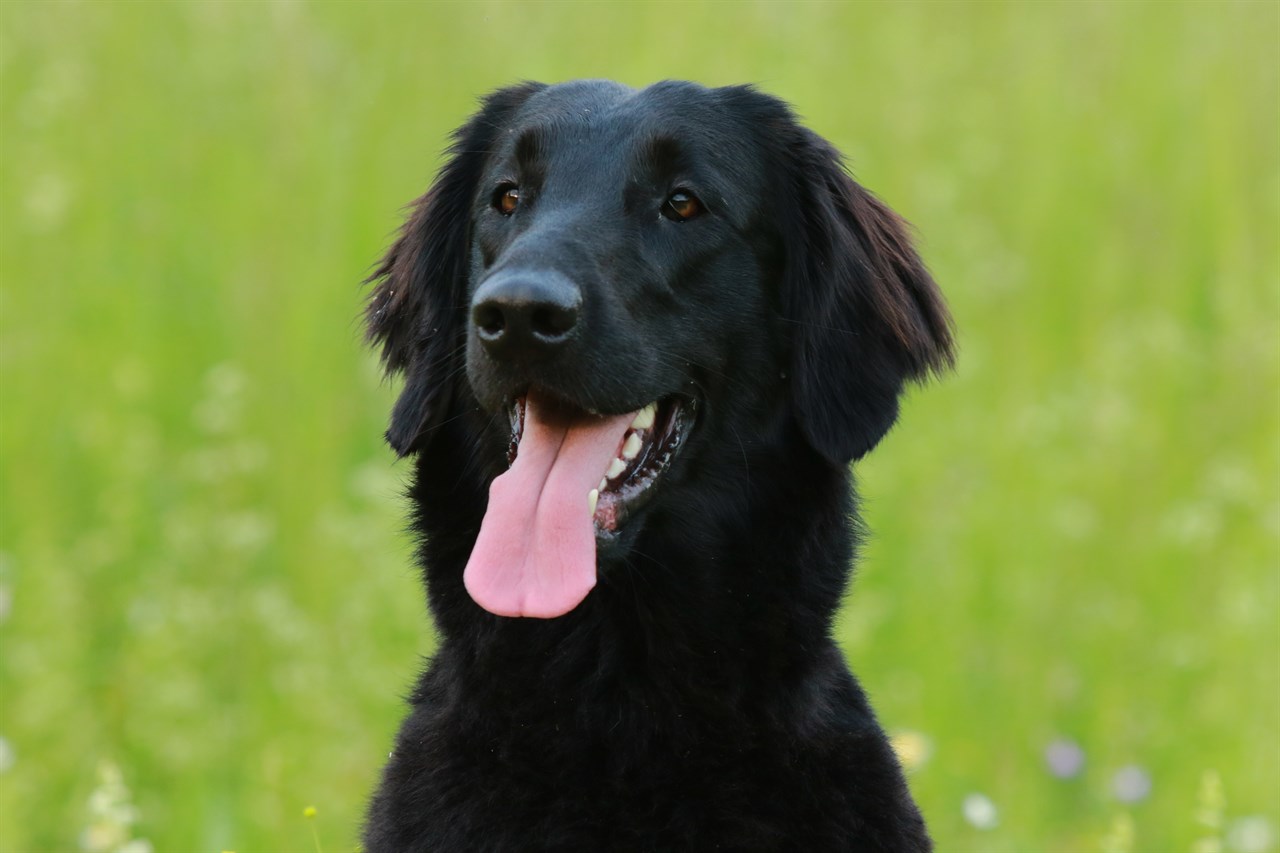Barking Habits of the Flat-Coated Retriever

Flat-Coated Retrievers are known for their friendly and outgoing personalities, and their barking habits are often a reflection of their social nature and the situations they find themselves in. Understanding their typical barking tendencies can help you manage and address their vocalizations effectively.
Alert Barking
Like most dogs, Flat-Coated Retrievers are naturally alert and may bark to notify their owners of perceived intruders, visitors, or unusual sounds. This type of barking is typically short-lived and serves as a signal that something has caught their attention. It's a helpful trait that can make them good watchdogs.
Playful Barking
Flat-Coated Retrievers are playful by nature, and they may bark when they're excited during playtime. This type of barking is often accompanied by wagging tails and exuberant behavior. It's a way for them to express their enthusiasm and engage with their owners or other dogs.
Social Barking
These dogs are highly social animals and may bark when they want attention, affection, or interaction with their human family members. This type of barking is usually a form of communication and is their way of saying, "Let's do something together!"
Separation Anxiety Barking
Flat-Coated Retrievers are known for forming strong bonds with their owners, and some individuals may develop separation anxiety when left alone for extended periods. Separation anxiety can manifest as excessive barking, along with destructive behavior and other signs of distress.
Boredom Barking
Flat-Coated Retrievers are intelligent dogs that require mental stimulation. If they become bored or understimulated, they may resort to barking as a way to pass the time or express their frustration. Providing toys, puzzles, and engaging activities can help alleviate boredom-related barking.
Training and Management
While these dogs are generally not known for excessive or compulsive barking, it's essential to establish clear boundaries and expectations from an early age through consistent training. Teaching them the "quiet" or "enough" command can be valuable in managing their barking habits. Reward-based training methods work well with Flat-Coated Retrievers, as they respond positively to praise and treats.
Do Flat-Coated Retrievers Bark a Lot?
The barking tendencies of Flat-Coated Retrievers can vary from one individual to another. Overall, they are not considered excessive barkers compared to some other breeds known for their vocal nature, like certain terriers or hounds. However, their level of barking can be influenced by factors such as genetics, socialization, training, and the specific environment in which they are raised.
To minimize excessive barking or address any behavioral concerns related to barking, it's essential to provide proper socialization, mental stimulation, and training from an early age. Additionally, ensuring they get enough physical exercise can help reduce restlessness and boredom, which can contribute to barking.
If you have concerns about your Flat-Coated Retriever's barking habits, or if they are displaying signs of separation anxiety or excessive barking, consider seeking guidance from a professional dog trainer or behaviorist. These experts can provide personalized strategies to address specific issues and help your dog become a well-mannered and contented member of your family.
Flat Coated Retriever puppies for sale
- Find Flat Coated Retriever puppies for sale in ACT
- Find Flat Coated Retriever puppies for sale in NSW
- Find Flat Coated Retriever puppies for sale in NT
- Find Flat Coated Retriever puppies for sale in QLD
- Find Flat Coated Retriever puppies for sale in SA
- Find Flat Coated Retriever puppies for sale in TAS
- Find Flat Coated Retriever puppies for sale in VIC
- Find Flat Coated Retriever puppies for sale in WA